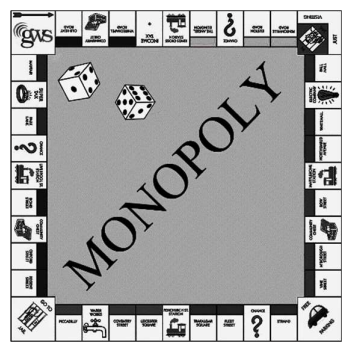
Monopoly is a very popular board game around the world today, but little is known about its American inventor, Elizabeth Magie, and the philosophy behind her invention.
Born in 1866, Magie was a rebel against the norms and politics of her times. Inspired by Henry George who believed that all men should have an equal right to use the land as they have to breathe air, she challenged the capitalist system of property ownership—in the form of a board game. In 1904, she patented her Landlord’s Game, which consisted of a circuit of streets and landmarks for sale.
Magie’s game contained two sets of rules: The Prosperity rules and the Monopolist rules. The Prosperity rules stated that every player should gain each time someone acquired a new property. The game was won (by all!) when the player starting with the least money doubled his or her fortune. Under Monopolist rules, on the other hand, each player advanced by acquiring properties and collecting rent from all who landed there later. Whoever managed to bankrupt the other players won the game. The purpose of the dual sets of rules, said Magie, was for players to understand how these different approaches to property can lead to different social outcomes: “all win” or “win all.”
The game soon became a hit on college campuses and among Quaker communities, and some people modified the game board. An unemployed player named Charles Darrow sold this modified version to the manufacturer Parker Brothers as his own. However, when the game’s true origin came to light, Parker Brothers bought the patent from Magie for only $500. They then re-launched the game as Monopoly, including only the rules leading to the triumph of one over all. Darrow was publicized as the inventor who had become a millionaire from selling the game. Thus
a rags-to-riches myth was created, ironically exemplifying Monopoly’s implicit values: Chase wealth and crush your opponents if you want to come out on top.